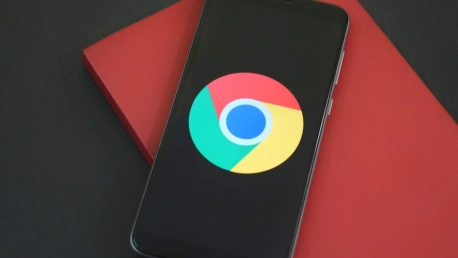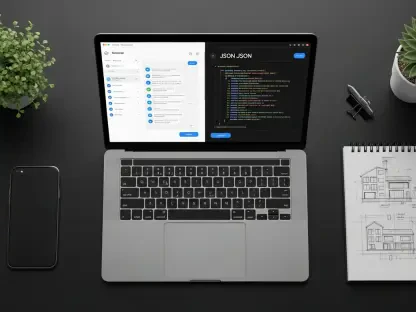Google Chrome is the world’s leading Internet browser, with a 65.24% global market share.
The tech giant recently provided an updated timeline for the transition to Manifest V3, the latest change to its set of rules for browser extensions. Although Google states that Manifest V3 will improve security, performance, and privacy, public reaction has mainly been adverse. Both users and developers express concern about the functionality of certain features and extensions, especially ad blockers.
In this article, we will shed light on what Manifest V3 will entail for users and the industry as a whole, focusing on the impact it will have on ad blockers.
What is Manifest V3?
Manifest V3 is the most recent iteration of the Chrome extension platform. This application programming interface (API) will govern how Google Chrome extensions interact with a user’s browser. Manifest V2, the current version of the API, already manages these interactions, but Manifest V3 will change the rules for extensions in ways that could affect how many browser extensions work. This will require most third-party extension developers to revise their code to ensure compatibility with Manifest V3.
According to Google, Manifest V3 is an important step toward realizing its vision for the extensions platform, promising to improve privacy, security, and performance for both developers and users.
Google’s timeline shows that the transition to Manifest V3 will take place in January next year. By June 2023, the Chrome Web Store will no longer allow Manifest V2 items to be published with the visibility set to Public. Furthermore, the visibility of all existing Manifest V2 items set to Public at that time will be changed to Unlisted. In January 2024, the Manifest V2 enterprise policy will permanently expire, and the Chrome Web Store will remove all its remaining items from the store.
Industry Response, Criticism, and Concerns
So far, Manifest V3 has been heavily criticized by industry experts. The non-profit organization Electronic Frontier Foundation (EFF) has raised questions about Google’s true motives for this change, stating that “the changes in Manifest V3 won’t stop malicious extensions, but will hurt innovation, reduce extension capabilities, and harm real-world performance.” EEF further explained that “forcing all extensions to be rewritten for Google’s requirements without corresponding benefits to users is a fundamentally user-hostile move by Google.”
Google’s move seems like a golden opportunity for the competition, as Manifest V3 has already led some users to switch to other web browsers. Brave Software, the developer of the open-source web browser Brave, also condemned the transition to Manifest V3, stating that “Google is harming privacy and limiting user choice.” In order to give users as many options as possible for protecting their privacy and security online, Brave will continue to block ads and “support Manifest V2 extensions […] even after Chrome stops doing so.”
Developers and Chrome users expressed further concerns about the potential changes Manifest V3 could bring.
Developers are Confused and Frustrated
Developers need clarification on the poor documentation and are frustrated by potentially missing features, but most importantly, they are concerned that Manifest V3 will affect their extensions. In fact, many extension developers, including Ghostery, and NoScript, have criticized the move, considering that their extensions are prime examples of products that Google’s changes would seriously impact. Giorgio Maone, an author at NoScript, considers the migration to Manifest V3 to be a “major regression from a functional and technical point of view” that “doesn’t bring any gains in return for the users.” Krzysztof Modras, Ghostery’s director of engineering and product, said that “nearly all browser extensions […] will be affected in some way,” with some only experiencing problems, while others “will literally cease to exist.”
However, since this criticism is unlikely to cause Google to deviate from its product roadmap, some developers have been focusing on updating their extensions to be compatible with Manifest V3 and ensure continuity for their users. For example, AdGuard recently launched its own Manifest V3-compliant version on the Chrome Store.
Users are Concerned About Privacy Issues
In the short term, Manifest V3 will primarily affect developers. In the long term, however, users could also feel the impact, provided they continue to use Google Chrome as their web browser. Since ad blocking usually serves a greater purpose than simply hiding intrusive advertisements, Chrome users are already voicing their concerns about the future of certain extensions. If ad block extensions don’t work properly or cannot be used, users’ privacy may be at risk, as these extensions protect users’ privacy by keeping out various tracking and data tools.
How Does Google’s Manifest V3 Impact Ad Blocking?
Ad blocking extensions use filter lists to establish which network requests to block or hide and which to let through. For example, network requests related to advertising, subscription pop-ups, and privacy notices are typically blocked.
Until now, extensions meant to block content have relied on Chrome’s webRequest API, introduced with Manifest V2 in 2012. Because the webRequest API allows developers to manipulate web requests, it has played an important role in helping ad blocking extensions reliably block ads, and gain widespread popularity among users.
Manifest V3 provides a different system, declarativeNetRequest API, to accomplish the same goal. However, this new system only allows extensions to run 30,000 rules (i.e., specific conditions that enable the extension to block an HTTP address). The problem is most ad block extensions would need to run at least 300,000 rules to be effective. According to EFF, removing webRequest won’t necessarily stop abusive extensions. However, it is expected to sabotage privacy and security extensions.
To make matters worse, in addition to these rules, Manifest V3 also limits the number of filter lists that can be loaded by an extension and can be active at the same time.
The Bottom Line
The Manifest V2 era has come to an end. While its successor will bring some unwanted changes, if you don’t upgrade to Manifest V3 or make only superficial adjustments, you could face other privacy, security, and performance issues. But of course, Manifest V3 has its good points as well. Extensions were never implemented on mobile devices because they can cause a detrimental impact on page performance. With Manifest V3, users might finally be able to enjoy using extensions on their mobile devices and personalize their browsing experience with the same flexibility previously reserved for desktop devices.
Regardless of the heavy criticism that Google has faced since the announcement of Manifest V3, it remains to be seen whether Manifest V3 does more harm than good.









